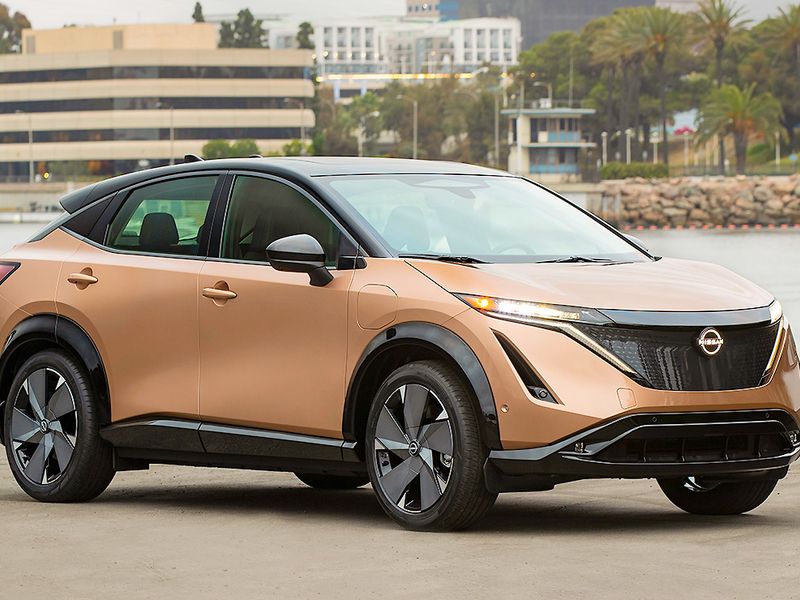
LOS ANGELES — The Ariya, Nissan’s first new electric vehicle in more than a decade, positions the Japanese automaker in the market’s sweet spot.
The Rogue-sized compact crossover will start at $47,125, including shipping, and arrive in U.S. dealerships this fall. Competitors include the Volkswagen ID4, Ford Mustang Mach-E and Tesla Model Y.
With the Ariya, Nissan is tapping into America’s truck addiction. The compact-crossover segment is up 6.4 percent so far this year. Meanwhile, sales of electric crossovers have soared 268 percent this year, with much of that momentum driven by the Model Y, and to a lesser degree, the new Mustang Mach-E and ID4.
The Ariya foreshadows a range of EVs to be built on a new dedicated platform co-developed by Nissan and partner Renault.
Nissan introduced the first mass-market, battery-powered EV in the U.S. — the Leaf — about a decade ago. But despite a head start, the Japanese automaker has been lapped by rivals with sexier and more powerful EVs.
Automotive analyst Jeff Schuster described the Ariya as a key weapon in Nissan’s strategy to elbow its way back into the bustling EV space.
“The Ariya is competitively specced with an adequate range, so it should cement Nissan as a foe in the segment,” said Schuster, president of global forecasting at LMC Automotive.
The Ariya is longer, wider and taller than the Leaf while packing more power and a longer driving range.
The crossover is powered by an 87-kilowatt-hour battery that will deliver 265 to 300 miles of EPA-estimated range, depending on the variant.
The 2023 Nissan Ariya will launch with three front-wheel-drive models, with a top-of-the-line, all-wheel-drive variant arriving shortly after.
The Ariya Platinum+ version will deliver 389 hp — an increase of 151 hp over the fwd variants. It will feature a new twin-motor, all-electric, awd system, dubbed e-4ORCE, that Nissan said provides “sports car-level power delivered in the blink of an eye.”
That puts the variant “about at parity” with the premium-brand Audi Q4 E-tron and Tesla Model Y Performance, AutoPacific analyst Ed Kim said.
“It will be Nissan’s burden to demonstrate to consumers that it’s worth the premium price,” Kim said.
Not having an awd version of the Ariya at launch could also put off some crossover shoppers.
“Crossovers are made to be all-wheel drive,” Slade said. “There are customers in a lot of cold-weather markets clamoring to buy this SUV, and the two-wheel-drive version simply won’t solve this demand.”
Nissan is taking a contrarian approach in launching its newest model.
Rather than have dealers order the Ariya at launch, Nissan will take reservations directly from potential customers.
The first 10,000 Ariya reservations made before Jan. 31, 2022, will qualify for a free, two-year EVgo membership, plus $500 in charging credits, upon purchase.
Aditya Jairaj, Nissan’s director of U.S. electric vehicle marketing and sales strategy, described the reservation program as a way to connect with the product’s most enthusiastic customers.
The information Nissan collects from reservation holders serves as a “key input” into decisions around product development and production planning, he said.
Customers can configure their vehicle and place a reservation with a $500 refundable deposit. Customers then select an EV-certified Nissan dealer to which to have their Ariya delivered. The vehicle purchase is completed online through [email protected] or at the dealership.